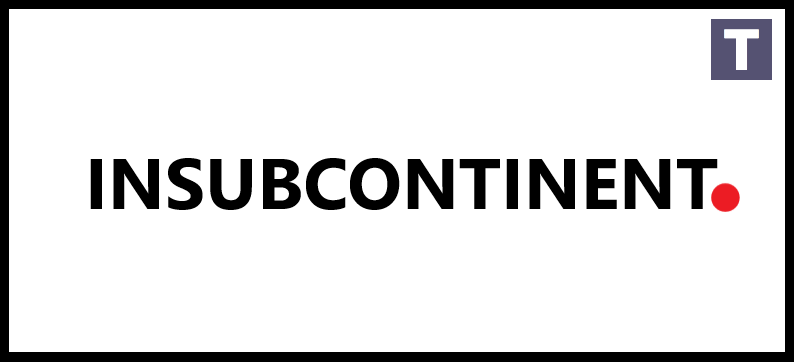INSUBCONTINENT EXCLUSIVE:
Scott Bade
Contributor
Share on Twitter
Scott Bade is a former speechwriter for Mike
Bloomberg and co-author of "More Human: Designing a World Where People Come First."
More posts by this contributor
How Huawei is
dividing Western nations
Silicon Valley Community Foundation challenges donors to address local problems
Tuesday afternoon saw
two big announcements from the tech world in the fight against COVID-19.
First, Jack Dorsey, CEO of Twitter and Square, announced he would
give $1 billion to COVID-19-related causes
A few hours later, a group of tech billionaires, including LinkedIn founder Reid Hoffman, Stripe Collison brothers, Y Combinator Paul Graham
and venture capitalist Chris Sacca, announced a rapid-response grant program for researchers working on COVID-19
These two announcements come on the heels of an initiative led by Bill Gates to build factories for the most promising COVID-19 vaccines and
a host of smaller efforts by tech industry leaders, including importing and donating personal protective equipment (PPE), building
ventilators and supporting local businesses.
Even as tech philanthropists ramp up their responses to the COVID-19 pandemic though, critics
of philanthropy lament the need for philanthropy to fulfill a role that should be played by government
Meanwhile, other commentators criticize it as a power grab
As Theodore Schleifer wrote in Recode this week:
And yet the critique of billionaire philanthropy revolves around the idea that these
donations are an expression of private power
Indeed, philanthropists like Moskovitz are some of the most important people in determining the shape of America response to an
They are imbued with unaccountable, untransparent, and undemocratic influence
And their donations can legitimize the philanthropists as heroes, which can discourage scrutiny of their business practices.
But this is
Even if the government had fully funded a pandemic response, and even if tech leaders& COVID efforts were a power grab (of which there is no
evidence), there would still be a role for the tech sector — and tech philanthropists — to play.
The question we should be asking is
whether or not their efforts are properly leveraging tech unique capabilities and resources
If Tesla (or GM) can make ventilators, software companies can help public health officials, programmers can help state labor departments
update their outdated unemployment systems and philanthropists can rush money to researchers more quickly than the government can, then they
It no different than hotels supplying empty rooms for first responders or the homeless to stay in during this tragedy.
Invoking the Defense
Production Act to compel manufacturers to produce masks and ventilators was uncontroversial precisely because everyone knew that capacity
rested exclusively with private industry; why wouldn''t we expect the tech sector to similarly contribute in this moment of national
emergency? And in the absence of a fully-funded national medical research establishment, the more resources going toward rapidly developing
a vaccine, the better.
Trump invokes the Defense Production Act to address the coronavirus pandemic
Which brings me to the oft-cited,
variably defined concept of &impact& that I&ve tried to focus on throughout my interviews at TechCrunch
How do you know when charitable giving is making a difference? How do you discern the difference between a PR stunt and a well-designed
program? How do you know that the right problem is even being solved?
Silicon Valley Community Foundation challenges donors to address
local problems
I&ve found that even the most earnest, data-driven philanthropistsdon''t always ask the right questions
Just because there is a measurable outcome doesn''t mean that it should define success
And just because a company or foundation is doing some good doesn''t mean it is maximizing the social impact it can have.
After all,
sometimes maximizing social impact simply means a company is performing its core competency
If tech companies — and the billionaire philanthropists they create — happen to have a skill set that is useful in a public emergency,
then the responsible thing to do is to do it and do it well.
We&ve spent so long asking tech to turn its attention to real-world problems
Let not complain when they do so now.
That doesn''t mean we shouldn''t criticize tech firms when they fall short, of course
People have rightly criticized firms like Amazon (and Whole Foods), Instacart, Seamless and DoorDash for their deficiencies in protecting
Tech companies still must be held accountable even when they are fulfilling essential functions.
It clear though that beyond keeping the
supply chain going, technology will play a central role in implementing any strategy to overcome the novel coronavirus pandemic
Moving PPE around the world requires the logistical expertise companies like Flexport and Apple have mastered
Mass testing will require the rapid rollout of new devices from biotech firms like Gilead Sciences
A tracing regime will require massive data collection and analysis like that done by Verily or Palantir
And of course we&ll have to manufacture and distribute vaccines and other treatments at scale
Like Amazon or not, I suspect it might have a role to play.
Which brings me to Bill Gates, whose announcement that he will start building
factories for promising vaccines now has made him the most central tech figure in responding to COVID-19
Bill Gates isn''t just a tech philanthropist
He is — after years of study — one of the world leading experts on pandemic preparedness
When we look to him for guidance, we&re not asking for a tech billionaire to assert his power
We&re embracing the leadership of someone who has a proven track record bringing his engineering and project management skills to bear on
some of the most intractable public health problems of the last few decades.
Of course in an ideal world, the void Gates is filling would
already be filled by the government
It inexcusable that it isn''t
But good democracy also means asking for all of society to contribute
And good public policy means looking for the best solutions wherever they are found.
Sometimes that means an anonymous bureaucrat in the
And sometimes it means a billionaire public health nerd tech mogul.

